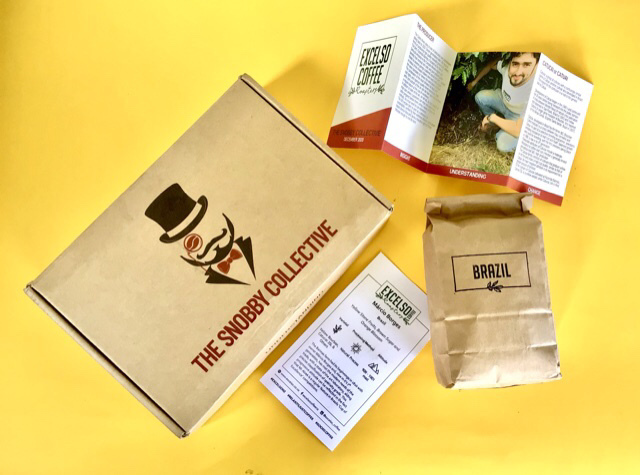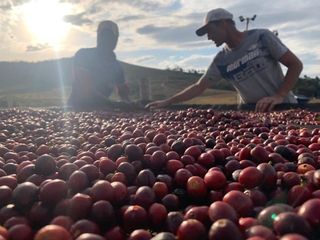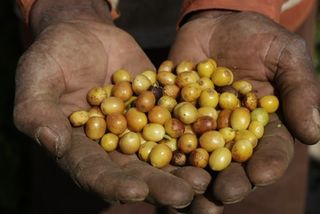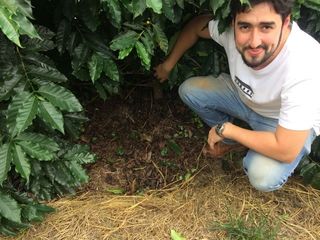December 2020
Feature #26
It had been more than a year since we had shared anything from Brazil, making for a fresh and exciting first collaboration with Excelso Coffee Roasters offering up a coffee with so much to explore.
During December we decided to focus on;
THE PRODUCER:
The Castro Alves story is one of dedication and commitment dating back to 1820. Seven generations later, the focus is firmly on producing high quality naturally processed coffees. The farm, Fazenda Barinas is located at the foot of Serra da Ventania in the Cerrado Mineiro region and benefits from mineral rich soils and pure pristine water thanks to several springs scattered across the farm, named in honour of the Araxas Indians who lived in the region, the name translates to “where the wind blows stronger”. The combination of the local climates hot days and cold nights and rigorous quality driven processes, both within and outside of the on site lab have seen Marcio Alves a regular feature at the cup of excellence. In addition to state of the art, on site lab, the farm boasts a retail store where customers can enjoy and experience coffee prepared before them using a variety of different methods, for a true seed to cup experience. The 430 hectare farm is seen as a reference for sustainability, verified by their rainforest alliance certification boasts diverse flora and fauna a beautiful sight for those fortunate enough to visit the farm.
CATUCAI or CATUAI:
This segment is currently only available to subscribers.
CULTIVARS:
Cultivar takes its name and meaning from how it was derived as a “cultivated variety.” Often a variety that has been created by humans to provide a particular purpose or solve a particular problem. Coffee cultivars such as Castillo (Colombia) were created to be resistant to coffee leaf rust, while others have been bred to be resistant to disease and drought or to produce high yields, allow for intensive planting. One common method is to create a hybrid of two plants through propagation of cuttings or grafting, resulting in seedlings that carry the same characteristics of their parent plant. Reproduction by seed often results in a plant that doesn’t retain the characteristics of the parent plant. It is not uncommon for hybridisations to have some Robusta lineage, such as Kenyan cultivars Ruiru 11 and the recent release (2010) Batian, gaining their Robusta lineage from the Timor Hybrid, (Also known as HDT or TimTim), which is a naturally occurring hybrid, the result of spontaneous mating of Arabica and Robusta varieties in Timor-Leste. While some cultivars have Robusta in their lineage, hybrids such as those within the Catimor family are genetically classified as Arabica. How is a cultivar different from a variety? Typically a variety is naturally occurring, and its seedlings will retain the characteristics of the parent plant even when grown from seed.
TASTING NOTES:
Country: Brazil
Altitude: 950-1001 M.A.S.L
Cultivar / Variety: Topaz, Yellow Bourbon Catucai 2SL, Catucai 144 Acuaua, IBC
Process: Natural
Harvest: 2018/2019
Screen size: 16/17/18
Tasting notes: Yellow stone fruits, Brown Sugar, Orange blossom
Aroma: Sweet and Vanilla
RECIPE:
Recommended method: Pour over
Brewer: V60
Ratio: 1:17
Temperature: 84 degrees
Additional images thanks to Excelso Coffee Roasters.
|
© Copyright Derelict Coffee Roasters |




